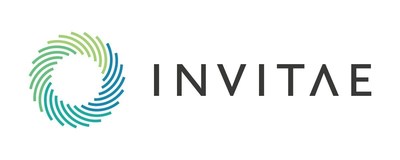– Invitae retrospective analysis reinforces the clinical actionability of following the ASBrS guidelines –
– Testing results informed clinical management and suggest that genetics-informed care may improve patient outcomes and optimize resource utilization –
SAN FRANCISCO, Oct. 12 , 2023 /PRNewswire/ -- Invitae (NYSE: NVTA), a leading medical genetics company, today announced results of its collaborative study on universal hereditary cancer genetic testing in all patients with breast cancer in a rural population in the Annals of Surgical Oncology. Conducted in collaboration with The Outer Banks Hospital (TOBH) in North Carolina from 2019 to 2022, the study analyzed the implementation of universal hereditary cancer genetic testing in all patients with breast cancer, as recommended by the American Society of Breast Surgeons (ASBrS)guidelines in 2019. The results reaffirm the previous findings of Whitworth et al. that universal hereditary cancer genetic testing improves patient outcomes and shows testing based de-escalation of therapy which may curtail treatment costs.

In the study, all patients diagnosed with breast cancer were offered hereditary cancer genetic testing and 91.4% underwent testing and received results that could aid in their healthcare journey. Approximately half of the patients (52.4%) met National Comprehensive Cancer Network (NCCN) criteria while 45.8% did not meet the NCCN criteria. Implementation of universal hereditary cancer genetic testing in this rural healthcare system was facilitated by genetics-trained clinicians who provided pretest education and results disclosure, with treatment recommendations discussed at multidisciplinary tumor boards. Of the patients who underwent testing, 13% had a pathogenic (disease-causing) germline variant (PGV) in one of 15 genes and the frequency of PGVs did not differ between out of criteria and in criteria patients, although in criteria patients had a larger proportion of high risk variants than the out of criteria patients, consistent with previous findings of Beitsch et al. Currently, NCCN criteria restrict hereditary cancer genetic testing to a subset of patients with breast cancer while these data provide further evidence confirming the ASBrS recommendation of universal testing for all patients with breast cancer as the standard of care.
"This study demonstrates the feasibility of implementing universal hereditary cancer genetic testing for patients with breast cancer in rural community practices," said Robert Nussbaum, M.D., chief medical officer at Invitae. "The results reiterate in a real-world setting that genetic testing changes management and treatment plans for these patients, improving patient care."
Genetic testing-informed changes to clinical management, including changes in surgery, radiation, surveillance and clinical-follow up, occurred in 70% of patients. The majority of patients (97%) reported that testing results were useful in shared surgical decision-making and that knowledge of the results prior to their primary therapy reinforced their choice for surgery.
"Our study provides a blueprint for implementing universal hereditary cancer genetic testing in rural populations who typically see disproportionate care due to access to services and treatment," said Charles Shelton, M.D., lead author of the study and radiation oncologist at TOBH. "We demonstrate that germline-directed clinical management did not lead to under- or overuse of radiation therapy or bilateral mastectomy, thus demonstrating that universal testing enables optimization of clinical care and reduces unnecessary healthcare resource utilization."
To learn more about germline genetic testing, visit our website or contact us.
About Invitae
Invitae (NYSE: NVTA) is a leading medical genetics company trusted by millions of patients and their providers to deliver timely genetic information using digital technology. We aim to provide accurate and actionable answers to strengthen medical decision-making for individuals and their families. Invitae's genetics experts apply a rigorous approach to data and research, serving as the foundation of their mission to bring comprehensive genetic information into mainstream medicine to improve healthcare for billions of people.
To learn more, visit invitae.com and follow for updates on Twitter, Instagram, Facebook and LinkedIn @Invitae.
Safe Harbor Statement
This press release contains forward-looking statements within the meaning of the Private Securities Litigation Reform Act of 1995, including statements relating to the company's beliefs regarding its study results; the company's belief that the results demonstrate the clinical benefits of universal hereditary cancer genetic testing in patients with breast cancer; the company's belief that the study reinforces the clinical actionability of following the ASBrS guidelines; the company's belief that the study demonstrates the feasibility of implementing universal hereditary cancer genetic testing for patients with breast cancer in rural community practices; and that genetics-informed care may improve patient outcomes and optimize resource utilization. Forward-looking statements are subject to risks and uncertainties that could cause actual results to differ materially, and reported results should not be considered as an indication of future performance. These risks and uncertainties include, but are not limited to: the company's ability to grow its business in a cost-efficient manner; the company's history of losses; the company's ability to maintain important customer relationships; the company's ability to compete; the company's need to scale its infrastructure in advance of demand for its tests and to increase demand for its tests; the risk that the company may not obtain or maintain sufficient levels of reimbursement for its tests; the applicability of clinical results to actual outcomes; risks associated with litigation; the company's ability to use rapidly changing genetic data to interpret test results accurately and consistently; security breaches, loss of data and other disruptions; laws and regulations applicable to the company's business; and the other risks set forth in the company's filings with the Securities and Exchange Commission, including the risks set forth in the company's Quarterly Report on Form 10-Q for the quarter ended June 30, 2023. These forward-looking statements speak only as of the date hereof, and Invitae Corporation disclaims any obligation to update these forward-looking statements.
Invitae PR contact:
Renee Kelley
pr@invitae.com
 View original content to download multimedia:https://www.prnewswire.com/news-releases/rural-hospital-system-demonstrates-the-clinical-benefits-of-implementing-universal-hereditary-cancer-testing-in-patients-with-breast-cancer-301955337.html
View original content to download multimedia:https://www.prnewswire.com/news-releases/rural-hospital-system-demonstrates-the-clinical-benefits-of-implementing-universal-hereditary-cancer-testing-in-patients-with-breast-cancer-301955337.html
SOURCE Invitae Corporation
